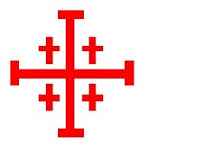
The Anglican Covenant and the Special Convention of the Diocese of Dallas
There is no reason why we cannot remain in the Episcopal Church and in the Anglican Communion at the same time by accepting the Anglican Communion Covenant. The Anglican Communion Covenant is not something new, but is simply a re-affirmation of our historical position as Episcopalians. We have over the years made a number of covenants and you may review some of them in the Historical Document section of the Book of Common Prayer on pages 863 to 878.
You yourselves have made a number of Covenants in the context of your Episcopal faith. Among these Covenants are Baptism, Confirmation, Marriage, and for some Ordination. Every time you say a Creed in church you are renewing your Covenant with the ancient and historical Church. The acceptance of The Book of Common Prayer is a Covenant setting forth the Liturgy of the Church. This covenant is on page 8 of The Book of Common Prayer and says, “This Convention having, in their present session, set forth A Book of Common Prayer, and Administration of the Sacraments, and other Rites and Ceremonies of the Church, do hereby establish the said Book: And they declare it to be the Liturgy of this Church: And require that it be received as such by all the members of the same: And this Book shall be in use from and after the First Day of October, in the Year of our Lord one thousand seven hundred and ninety.” This ratification requires that you as a member of The Episcopal Church make a Covenant to accept The Book of Common Prayer as your standard for worship. That Covenant is part of both Baptism and Confirmation.
The making and renewing of Covenants is central to the very nature of the Episcopal Church and our American heritage. It is not at all unusual for us to belong to several organizations by accepting the Covenants of these Organization. For a number of years my wife and I have been members of both the Episcopal Church and at the same time Oblates of the Order of St. Benedict at St. Scholastica Monastery in Fort Smith, Arkansas. Now St. Scholastica Monastery happens to be Roman Catholic (quite a stretch for an old Scots Presbyterian boy). There is no conflict in making covenant with both the Episcopal Church and the Order of St. Benedict. We are also members of our Scot’s Clans, Clan Chattan and Clan MacNaughton, a two other Clans at the same time. You yourselves are no doubt members of the Episcopal Church and members of a number of other organizations. In most organizations there is an implicit Covenant to accept the rules for membership and pay the fees to maintain your Covenants, and most often you renew those Covenants annually.
Covenant making is part of life, and we do it all the time. To be an Episcopalian is to be a Covenant Maker. I strongly support renewing our “Anglican Covenant” with the Anglican Communion and at the same time remaining within the Episcopal Church.
The Rev’d. Canon Rob Smith +
Postscript: The Special Convention is over. We have not only voted to endorse but also to enter into the Anglican Covenant and the news is now out on the internet. I am saddened by how many of the conservative “departed” who make up the primary audience of “Virtue On Line,” have marginalized themselves by their attitudes and actions. You will note that I have characterized them as loveless. Do you doubt me? Read their responses to any view that does not agree with their strong and self-righteous agenda; then reflect on the truth, “by their fruits you shall know them. I was startled by the claim that the Diocese of Dallas is more liberal as result of the departure from our diocese of some of their number. That reveals that the writer of that remark has no understanding of the trend and history of this diocese over the last twenty years. From my own perspective what is remarkable is that the strong majority of this diocese has supported the Covenant without being radicalized.

